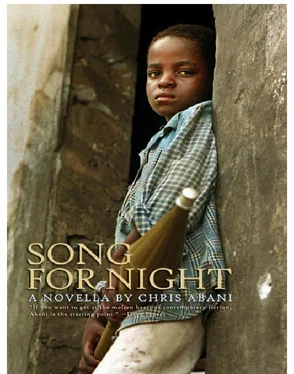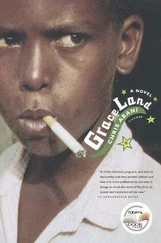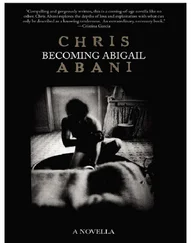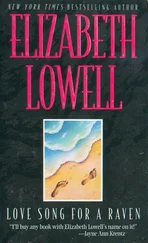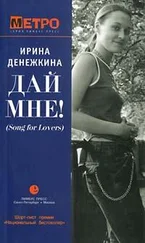The leader’s bunker is mythical. It is a talisman at its most ethereal, a mobile Camelot at its most concrete. Camelot: one of those things we learned in school that is useless to us now. Like the American Information Films that looked like they had been shot a hundred years ago, which were shown to us in boot camp. The films offered us ways to protect ourselves in the event of different kinds of enemy attacks, from catapults throwing Greek fire to napalm. There was one about protection in the event of a nuclear attack. It was simple and straightforward — hide under a desk. Some of those bush fucks in camp were impressed. Me, I could see through the fatal flaws of the logic even then:
1. Where would we find desks in this war?
2. Would the army provide them and would we have to carry them around ourselves?
3. Why would anyone hide from a fireball under a wooden desk?
But the frenzy of war dulls the senses. With death as our only option, I guess it is easy to believe anything. Besides, if the American government was telling their children to hide under desks, it must be true. They wouldn’t risk the lives of their own children, would they?
I wish I had found this cave earlier when I was making dinner. That way I could have made the fire here and I would still have it to keep warm. This high, the heat from the day is lost very quickly and the rock feels cold against my back. I can always get up and go collect kindling and wood and build another fire, but I am too comfortable and tired to move. The best I can do is smoke. I light a cigarette and blow smoke out of the cave mouth. Is this how our ancestors lived so long ago? Hunter-gatherers making do in shelters like this?
In the dim glow from the cigarette, I try to see if there are any markings on the rock walls. I can’t find any. Maybe I should make some. It occurs to me that this cave could be the result of a recent explosion, the force causing the crack.
I cannot remember how many days have passed since that initial explosion that separated me from my men. I should have made that mnemonic device, I think, absently stroking the Braille cemetery on my forearm. Stubbing out the cigarette, I shut my eyes.
Sleep comes easier and easier.
Sometimes rest too.
Music Is Any Dance You Can Pull Off
I have not returned to the road, though I can see it winding around the hill. Instead, I decide to follow a bush path down into the opposite foothills, rapidly descending to a valley. From the path, I can see for miles as I head down, my view obstructed only by the frequent clumps of trees and bushes that mark springs. The dust that coats all the vegetation by the roadside in a crumbly red ochre like an old villa wall doesn’t seem to get this far, and the leaves here have a varied and beautiful appearance ranging from deep emerald, through mottled pink, ginger, and yellow, to a deep brown. The grass here is not high, no more than a few inches in places. There are patches where the sun has burned it, giving it the appearance of a heather moor. In the distance, herds of cows attended by young men and white egrets graze. The egrets stalk beside the cows in solemn procession, occasionally jumping on the cattle to feed on the fleas that hug their hide, or to wheel and cry like gulls in a display of dazzling whiteness. I stop and watch them, a song from my childhood, the song Grandfather taught me, coming back.
The terrain levels off for a while and I pass through some more abandoned villages. The huts here are round. This gives the terrain the look of having haystacks dotted all over it. I go down one last steep incline and then the valley spreads out before me like a sheet. To the left, less than half a mile away, I can make out the silver ribbon of the river. Right in front of me, no more than a few hundred yards, is a lone house bordering a small pond. From somewhere I hear a gramophone scratch into life. It plays the same record over and over very loudly. The recording is of a voice; a woman’s. No other instrument. The woman sings a bit like Marlene Dietrich but also a bit like Eartha Kitt. I know these singers from the movies we saw in boot camp. I almost wish for boot camp; anywhere would be better than this. I don’t know what language the woman is singing in, it could be German, but as I follow the sound, which leads to the small tin-roofed bungalow by the pond, I am crying. It is dark when I finally arrive.
Outside on the veranda, in the soft light of a storm lantern, sits the gramophone and a man who looks to be in his late seventies. He glances up and sees me standing there and motions for me to join him.
“It’s beautiful,” he says, mournfully. “I don’t understand a word but it brings a tear to my eye every time I hear it.”
I smile, uncomfortable at his tears.
“I brought it back with me from the great war,” he continues. “The gramophone and a few records were given to me by my captain for my part in liberating France from the Nazis. Now they’ve got all these new hi-fi’s, but nothing plays like the old stuff. I don’t know what the words mean myself, but I was told that it is a long slow lament for the Aryan race. I play it because the tone of the song is extremely sad, reaching down inside you and yanking at the parts of you best forgotten. Beautiful,” the man sobs.
I sob with him.
“Are you okay?” he asks, after a while.
I nod.
“You don’t say much.”
I begin to sign my explanation, but he waves it away.
“It’s okay, I have been alone so long I can talk for us both.”
I smile and mime my thirst. He nods, and getting up he fetches a machete lying on the floor beside him. I point my gun at him, but he just laughs and walks to the edge of the veranda. He descends painfully and shuffles over to some banana trees growing beside the house. From a fallen trunk in the shade he cuts some small squares. Bringing them back, he hands them over.
“Suck on these,” he says. “They’ll cure your thirst in a way water cannot.”
I suck gratefully. They taste salty, but surprisingly I feel my thirst slaked by the fourth cube. He then passes me some ripe bananas. They are so soft and ripe and sweet.
“You know, in the old days, in villages, banana groves were used as rubbish tips. The compost helped the bananas grow and the trees released a chemical that degraded the rubbish quickly whilst neutralizing the odor,” he says. “I have survived on those bananas for so long I can’t remember what real food tastes like … I am too old to hunt, you see,” he adds, eyeing my gun pointedly.
I get up and head off into the underbrush. Minutes later I come back with a small antelope, not much bigger than a dog. I cut some banana leaves and quickly skin and gut the animal. He watches with eyes wet from hunger. When I am done, he takes the meat from me and disappears into the house. I can hear him talking as he begins to cook. I feel good. At least he doesn’t treat me like a ghost. I lie back on the veranda and fall asleep.
The old man shakes me awake gently and places a plate of antelope stew beside me. We eat in silence and I can’t believe how good the food tastes. I want to thank him, but in the darkness I don’t know if he can make out my signs, so I don’t. When I am done, several helpings later, I light a cigarette and pass it to him. He takes it and thanks me. I light one for myself. He gets off the veranda and goes to the banana grove and begins digging in the dirt.
“I play an instrument, but I keep it buried because of the war. I would like to play for you, to thank you for the meal,” he says, grunting as he digs. I want to help him but I feel like it is important for him to do this himself. I wonder why he would worry about losing an instrument and not his gramophone, which would be more valuable to any passing thief. Finally, with a sigh he pulls up a square wooden box. Flipping it open, he removes a beautiful musical instrument. I have never seen one like it. Fragile, its body is made of a thin hollowed-out calabash, which acts as a sounding board. It is carved with designs and stained a dark color. A long neck curves up in an arc of brown obeche. It has strings arranged like a harp. He sits down on the wooden box, balances the instrument on his crossed knee, and begins plucking it with a fishbone plectrum, right there in the darkness of the banana trees. The sound is ethereal; disturbing; and I almost expect spirits to appear at his feet, dancing. The song is unrecognizable. It escalates and then, just before the crescendo of the final movement, it falls back into a sigh. The sound is tight and seamless and the tune seems to have been written for it. His playing ends on a soft note, which vibrates in the air for a few seconds afterwards. He opens his eyes and turns to where I am crouching in the darkness.
Читать дальше
